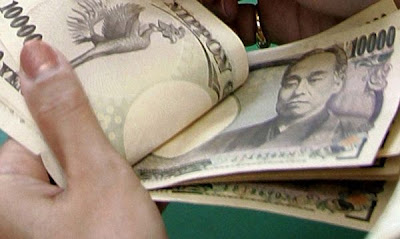Asian economic recovery solid but inflation a risk
 Asia's developing economies are expected to grow by just under 8% in 2011, according to the Asian Development Bank (ADB).
Asia's developing economies are expected to grow by just under 8% in 2011, according to the Asian Development Bank (ADB).
In its annual Asian Development Outlook it predicted that the region would expand solidly over the next two years.
However, growth rates would be slower than in 2010, it said.
And it warned that inflation would pose a challenge for many Asian countries and could lead to social tensions.
The ADB also said that stronger economic links between developing countries could offset reduced demand for goods and services from recession-hit richer countries.
"Developing Asia, having shown resilience throughout the global recession, is now consolidating its recovery and rapid expansion in the region's two giants - the People's Republic of China and India - will continue to lift regional and global growth," said Changyong Rhee, the ADB's chief economist.
Asia, excluding Japan, would grow by 7.8% in 2011 and 7.7% in 2012, down from 9% in 2010 when the region rebounded strongly from the global financial crisis, ADB predicted.
Mr Rhee said despite some short-term trade disruption, he expected last month's earthquake in Japan to have a minimal effect on the region as a whole.
He added that some countries could benefit from increased demand from Japan for construction materials as the country begins to rebuild the areas devastated by the quake.
"Under the assumption there is no further deterioration in the nuclear situation, I really don't think the impact will be that great,"
China and India would continue to drive the global and regional economic recovery, the ADB said.
But, like the rest of the region, the two countries would see slower rates of growth than last year, it added.
Economic growth in China was expected to moderate to 9.6% from 10.3% in 2010 as tighter monetary policy takes effect and as demand for exports in major markets such as the US and Europe remained sluggish.
India's economy was expected to expand by 8.2% in the year to March 2012, down from an expected 8.6% in the year to March 2011.
Mr Rhee said that inflation would be a headache for policy makers in the region as geopolitical tensions in the Middle East and the nuclear crisis in Japan had raised expectations of higher oil prices.
The report said that countries could not rely on tighter monetary policy alone to tackle inflation, but might also have to consider more flexible exchange rates.
Inflation in the 45 Asian economies covered by the report was forecast to rise to 5.3% in 2011, from 4.4% in 2010.
"Developing Asia is home to two-thirds of the world's poor and it is they who are most vulnerable to the effects of price increases," said Mr Rhee.
The report also warned that inflation, especially if driven by food prices, could exacerbate inequality and lead to social tensions.
With Europe, the US and Japan still struggling to recover from the effects of the global financial crisis, the ADB said the region would need to look to other developing countries to foster economic growth.
"Growing South-South relations at a time of modest growth in industrial economies could be a potential new driver of global growth," said Mr Rhee.
"But only if these economies become more open to trade and capital flows with each other."
However, growth rates would be slower than in 2010, it said.
And it warned that inflation would pose a challenge for many Asian countries and could lead to social tensions.
The ADB also said that stronger economic links between developing countries could offset reduced demand for goods and services from recession-hit richer countries.
"Developing Asia, having shown resilience throughout the global recession, is now consolidating its recovery and rapid expansion in the region's two giants - the People's Republic of China and India - will continue to lift regional and global growth," said Changyong Rhee, the ADB's chief economist.
Asia, excluding Japan, would grow by 7.8% in 2011 and 7.7% in 2012, down from 9% in 2010 when the region rebounded strongly from the global financial crisis, ADB predicted.
Mr Rhee said despite some short-term trade disruption, he expected last month's earthquake in Japan to have a minimal effect on the region as a whole.
He added that some countries could benefit from increased demand from Japan for construction materials as the country begins to rebuild the areas devastated by the quake.
"Under the assumption there is no further deterioration in the nuclear situation, I really don't think the impact will be that great,"
China and India would continue to drive the global and regional economic recovery, the ADB said.
But, like the rest of the region, the two countries would see slower rates of growth than last year, it added.
Economic growth in China was expected to moderate to 9.6% from 10.3% in 2010 as tighter monetary policy takes effect and as demand for exports in major markets such as the US and Europe remained sluggish.
India's economy was expected to expand by 8.2% in the year to March 2012, down from an expected 8.6% in the year to March 2011.
Mr Rhee said that inflation would be a headache for policy makers in the region as geopolitical tensions in the Middle East and the nuclear crisis in Japan had raised expectations of higher oil prices.
The report said that countries could not rely on tighter monetary policy alone to tackle inflation, but might also have to consider more flexible exchange rates.
Inflation in the 45 Asian economies covered by the report was forecast to rise to 5.3% in 2011, from 4.4% in 2010.
"Developing Asia is home to two-thirds of the world's poor and it is they who are most vulnerable to the effects of price increases," said Mr Rhee.
The report also warned that inflation, especially if driven by food prices, could exacerbate inequality and lead to social tensions.
With Europe, the US and Japan still struggling to recover from the effects of the global financial crisis, the ADB said the region would need to look to other developing countries to foster economic growth.
"Growing South-South relations at a time of modest growth in industrial economies could be a potential new driver of global growth," said Mr Rhee.
"But only if these economies become more open to trade and capital flows with each other."




























0 comments:
Post a Comment
We encourage people to contact us with any comments regarding news or any other queries about this site. We will respond you respectively and promptly.
We are going to moderate comments only to avoid unwanted and spam messages.
Thanks for your interest ! ! ! ! ! ! !